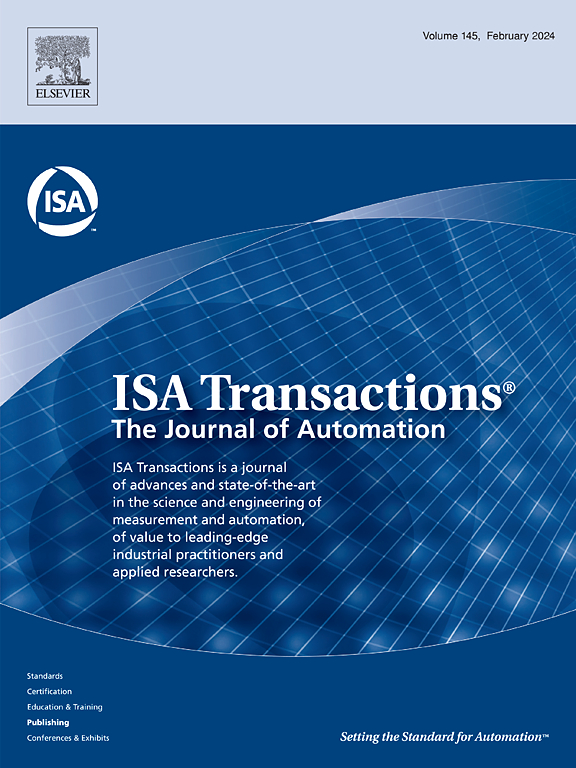A generalized maximum correntropy based constraint adaptive filtering: Constraint-forcing and performance analyses
IF 6.3
2区 计算机科学
Q1 AUTOMATION & CONTROL SYSTEMS
引用次数: 0
Abstract
The quadratic cost functions, exemplified by mean-square-error, often exhibit limited robustness and flexibility when confronted with impulsive noise contamination. In contrast, the generalized maximum correntropy (GMC) criterion, serving as a robust nonlinear similarity measure, offers superior performance in such scenarios. In this paper, we develop a recursive constrained adaptive filtering algorithm named recursive generalized maximum correntropy with a forgetting factor (FF-RCGMC). This algorithm integrates the exponential weighted GMC criterion with a linear constraint framework based on least-squares. However, the lack of constraint information during the learning process may lead to divergence or malfunctioning of FF-RCGMC after a certain number of iterations because of round-off errors. To rectify this deficiency, we introduce a constraint-forcing strategy into FF-RCGMC, resulting in a more stable variant termed robust type constraint-forcing FF-RCGMC (CFFF-RCGMC). In the context of CFFF-RCGMC, we embark on a thorough examination of its computational burden, encompassing both mean and mean-square stability analyses, along with an in-depth exploration of its transient and steady-state filtering characteristics under a set of plausible assumptions. Our simulation-based evaluations, specifically tailored for system identification tasks within non-Gaussian noisy environments, unequivocally underscore the excellent performance of CFFF-RCGMC when against its relevant algorithmic counterparts.
基于广义最大熵约束自适应滤波:约束强制与性能分析。
二次成本函数,以均方误差为例,在面对脉冲噪声污染时往往表现出有限的鲁棒性和灵活性。相比之下,广义最大相关熵(GMC)准则作为一种鲁棒非线性相似性度量,在这种情况下提供了优越的性能。本文提出了一种带遗忘因子的递归广义最大熵自适应滤波算法(FF-RCGMC)。该算法将指数加权GMC准则与基于最小二乘的线性约束框架相结合。然而,由于学习过程中缺乏约束信息,可能会导致FF-RCGMC在经过一定次数的迭代后,由于舍入误差而出现偏离或故障。为了纠正这一缺陷,我们在FF-RCGMC中引入了一种约束强制策略,从而产生了一种更稳定的变体,称为稳健型约束强制FF-RCGMC (CFFF-RCGMC)。在CFFF-RCGMC的背景下,我们开始对其计算负担进行彻底的检查,包括平均和均方稳定性分析,以及在一组合理假设下对其瞬态和稳态滤波特性的深入探索。我们基于仿真的评估,专门针对非高斯噪声环境下的系统识别任务,明确强调了CFFF-RCGMC与相关算法相比的优异性能。
本文章由计算机程序翻译,如有差异,请以英文原文为准。
求助全文
约1分钟内获得全文
求助全文
来源期刊

ISA transactions
工程技术-工程:综合
CiteScore
11.70
自引率
12.30%
发文量
824
审稿时长
4.4 months
期刊介绍:
ISA Transactions serves as a platform for showcasing advancements in measurement and automation, catering to both industrial practitioners and applied researchers. It covers a wide array of topics within measurement, including sensors, signal processing, data analysis, and fault detection, supported by techniques such as artificial intelligence and communication systems. Automation topics encompass control strategies, modelling, system reliability, and maintenance, alongside optimization and human-machine interaction. The journal targets research and development professionals in control systems, process instrumentation, and automation from academia and industry.
 求助内容:
求助内容: 应助结果提醒方式:
应助结果提醒方式:


